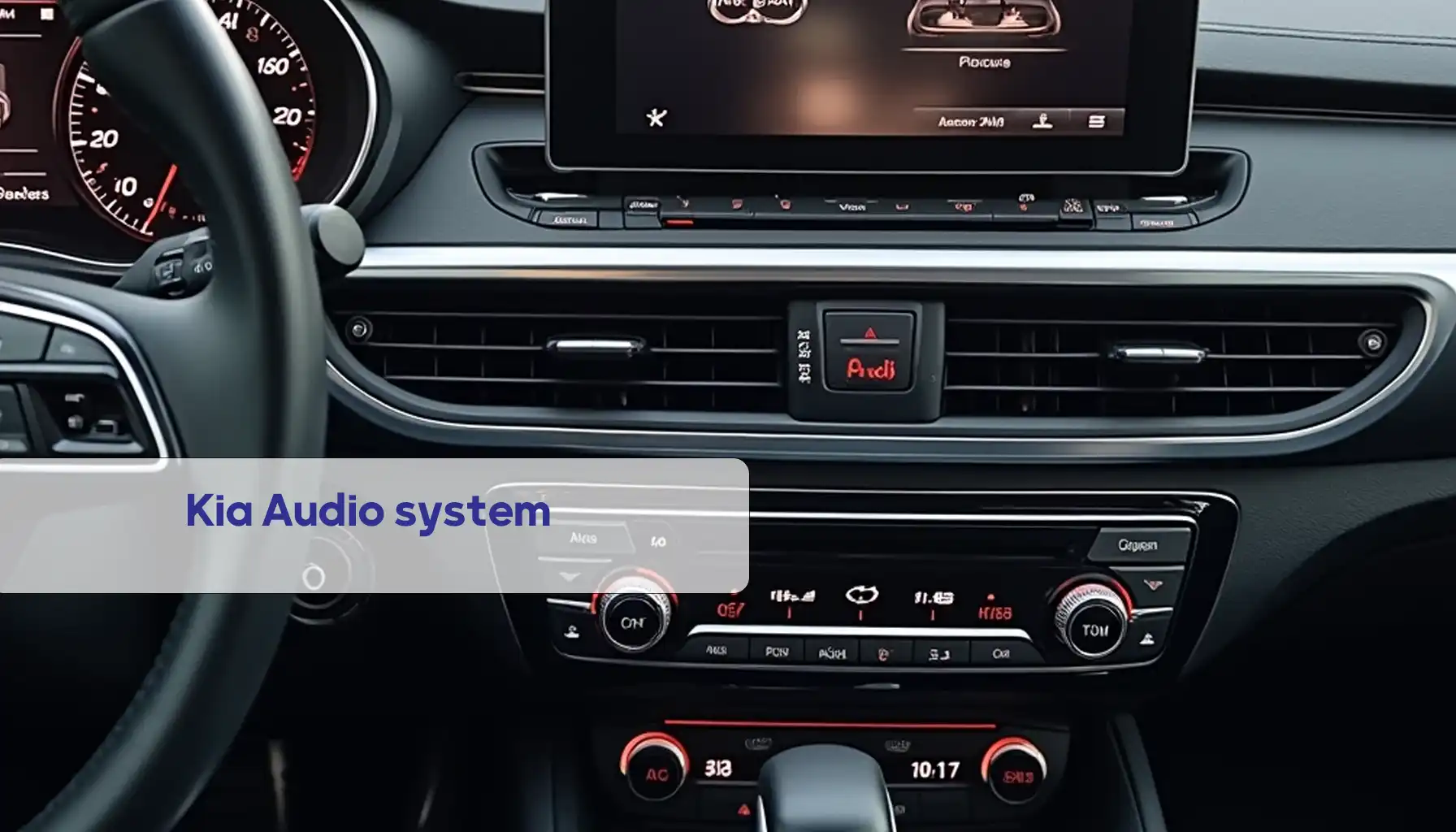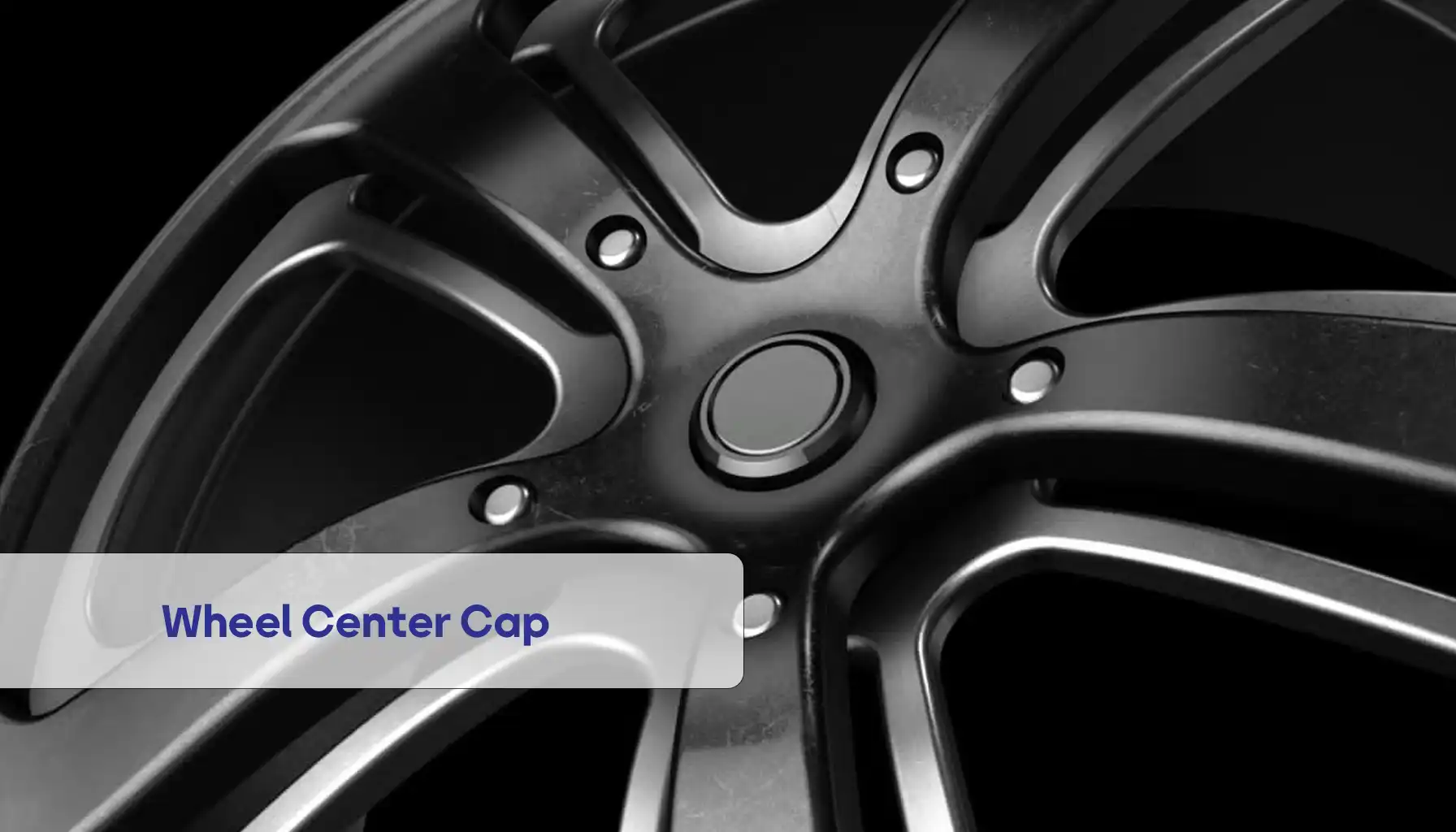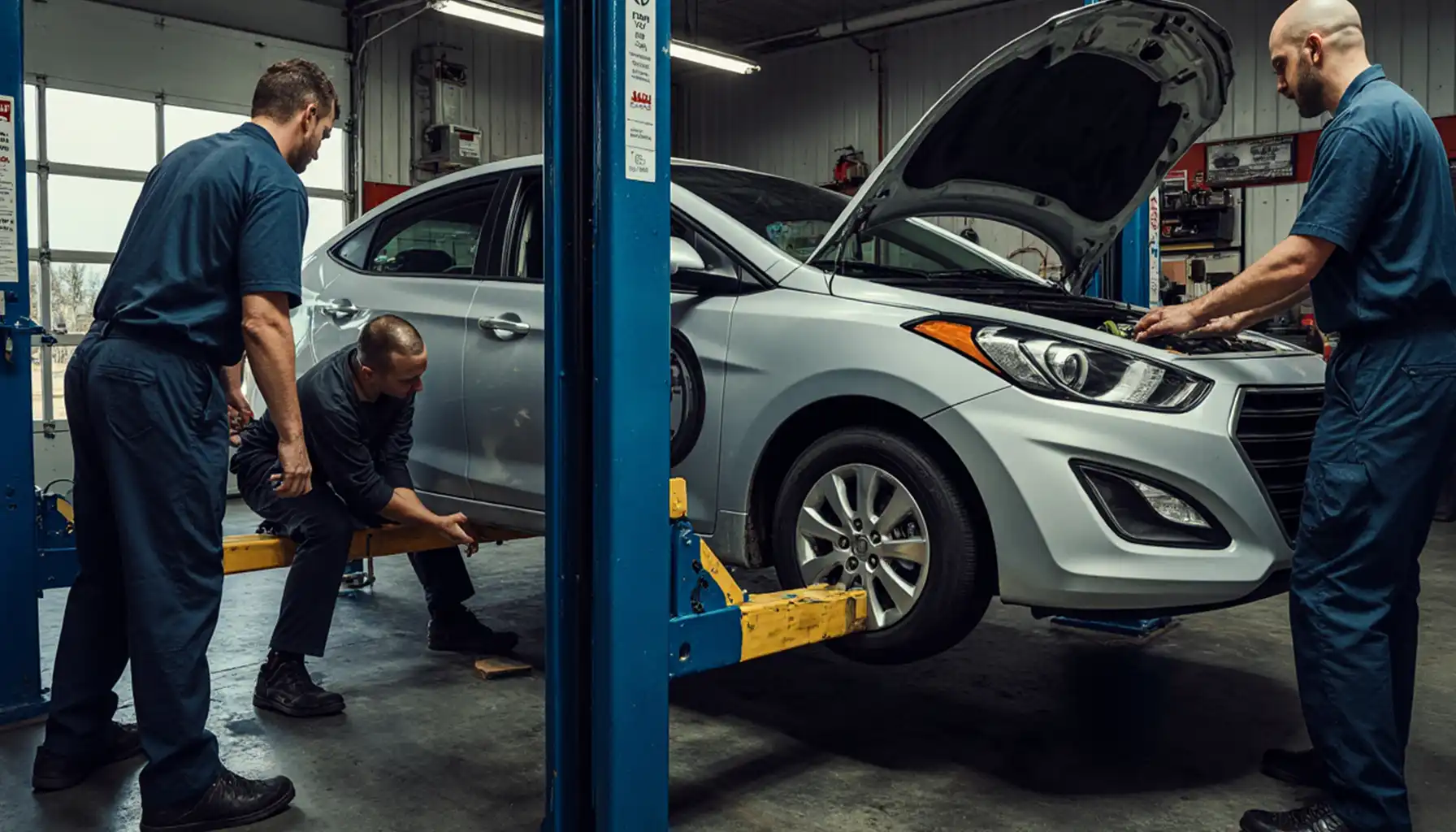Did you know that front disc brakes are essential for your car’s safety and performance? They’re the ones that help you stop smoothly and quickly when you need to. But just like anything else on your car, they wear out after a while and must be replaced.

So, how long do they last, and how can you make them last longer? Don’t worry. We’ve got you covered. In this blog post, we’ll share some tips on how to take care of your front disc brakes and answer all your questions.
How Long Should Front Disc Brakes Last?
The lifespan of front disc brakes depends on several factors, such as the type and quality of the brake pads and discs, the driving conditions and style, the weight and speed of the vehicle, and how often it is maintained.
Generally, brake pads should last between 25,000 and 65,000 miles, while brake discs should last between 30,000 and 70,000 miles. However, these are only average estimates, and your front disc brakes may last longer or shorter, depending on your specific situation.
signs that indicate that your front disc brakes need replacing
- Wearing brake pads will cause a screeching or grinding sound when you press the brakes. Your brakes may become less effective due to damage to the metal discs.
- If you feel a vibration or pulsation in your brake pedal or steering wheel when pressing the brake, the brake discs are uneven or warped. As a result, the steering and braking are also variable.
- When a car’s brake pads and discs cannot generate enough friction to stop it effectively, the braking distance becomes longer, or the braking power gets reduced.
- Your car’s computer has detected a problem with your brake system when a warning light or message appears on your dashboard. It is essential to have it checked as soon as possible.

If you notice any of these symptoms, you should have your brake discs inspected and replaced by a professional mechanic. Driving with worn or damaged front disc brakes can compromise safety and damage other car parts.
How to Make Front Disc Brakes More Effective
The effectiveness of your front disc brakes depends mainly on the quality and condition of your brake pads and discs. Therefore, you should choose high-quality brake pads and discs suitable for your car model and driving needs. Following the manufacturer’s recommendations or your mechanic’s advice, you should also check and replace them regularly.
Tips for improving the performance of your front disc brakes
Some tips to make your front disc brakes more effective are:
- Ensure you use the correct brake fluid for your car and keep it at the proper level. Brake fluid is the substance that allows the brake pedal to apply pressure to the brake calipers. This pressure makes the brake pads clamp down on the discs, causing the car to stop. If your brake fluid is low, contaminated, or not meant for your vehicle, your brakes might not work well and could harm your brake system.
- Keeping the brake calipers clean and lubricated is essential to ensure your brakes work correctly. Brake calipers are the devices that hold the brake pads and move them in and out when you brake. Dirty, rusty, or stuck brake calipers can prevent the brake pads from adequately contacting the discs, resulting in uneven or insufficient braking.
- To keep your brake pads and discs in good condition, avoid overheating them. Overheating can happen when you brake too much, too hard, or too long, especially when driving fast or on steep slopes. By doing so, brake pads and discs can wear and tear more quickly, crack, or warp, reducing their effectiveness and lifespan.
If you don’t want your ride to turn into a burning hot mess, you must be smooth and easy on your brakes. And when you’re driving downhill, try to use your engine or shift to a lower gear instead of just slamming the brakes. Also, only carry something you need, and leave the heavy stuff for someone else to tow.
How to Extend the Front Disc Brake Pads Lifespan
To make your front disc brake pads last longer, try braking less often and forcefully. Using them less frequently and more gently can also help you save fuel and drive more safely. The lifespan of your brake pads depends on how much and how hard you use them. Some tips to extend the front disc brake pad lifespan are:
Some tips for improving the front disc brake pad lifespan
- Drive at a moderate and consistent speed. Driving too fast or too slow can increase the need for braking, as you must adjust your speed more often to match the traffic or road conditions. You can maintain a safe distance from other vehicles and avoid sudden stops by keeping a steady pace.
- To brake smoothly and reduce wear and tear on your brakes, plan and pay attention to traffic signals, signs, curves, and hazards. You can avoid last-minute braking by anticipating what’s ahead and braking in advance. Remember to keep your braking gentle and prepare yourself by being aware of your surroundings.
- You don’t always have to rely on your brakes to slow down your car. There are other ways to reduce your speed, such as engine braking, coasting, or regenerative braking (if your vehicle has this feature). These methods can help you save your brake pads, discs, fuel, and emissions.

What are the consequences of driving with worn or damaged front disc brakes?
Driving with worn or damaged front disc brakes can be unsafe and expensive. It can lead to severe consequences such as:
- Replacing brake pads is less expensive than replacing brake rotors and calipers. It’s essential to remember this, as damaging these parts can be costly.
- Your car’s brakes may not respond quickly enough, making it take longer to stop and increasing the risk of accidents.
- When you press the brakes, your car might shake, vibrate, or move towards one side, which can mess up your steering and how you control the vehicle.
- Wearing your tires down can cause them to lose performance and reduce fuel efficiency.
Final Thought
To ensure your safety on the road and save money, following these tips for maintaining your front disc brakes is essential. These tips will help your brakes last longer and perform better.
FAQ
My brake pedal goes to the floor when I press it – what does that mean?

If you notice that your brake pedal sinks to the floor, there might be a problem with your brake system. An issue with the brake lines, master cylinder, wheel cylinder, or calipers could cause this. It’s essential to have your brake system checked by a mechanic immediately.
What causes my steering wheel or brake pedal to vibrate when I brake?

Excessive vibration when braking typically means your brake rotors have become warped over time from heat or worn unevenly. Resurfacing or replacing rotors will solve the vibration issue.
Can I drive with brake pads worn down to the wear indicator?

No-worn brake pads have almost no friction material to stop your vehicle safely. Get the brake pads changed immediately to ensure road safety and prevent rotor damage.
My brake caliper sticks when applying or releasing the brake – what causes this?

Corrosion, improper lubrication, debris obstruction, or a failing piston seal can make calipers stick. Keeping the brake pads and rotor from overheating requires repairing a sticking brake caliper.
What should be done to bed-in or break-in new brake pads correctly?

It’s essential to break in your brake pads to ensure optimal performance properly. To do this, gradually use your brakes over the first 100-200 miles, with accessible stops to transfer material, and seat your pads against the rotor. Avoid heavy brake usage at first to ensure even transfer and wear-in. If you perform hard stops immediately, your pads can become glazed.
How much does it cost to replace front disc brakes?

Replacing the front disc brakes could cost an average of $150 to $400 per axle. It includes both labor and parts costs. The price could be higher for luxury or high-end vehicles. In the case of excessively worn brake pads and rotors, replacing them alone is less expensive than replacing the entire caliper and brake hardware.



